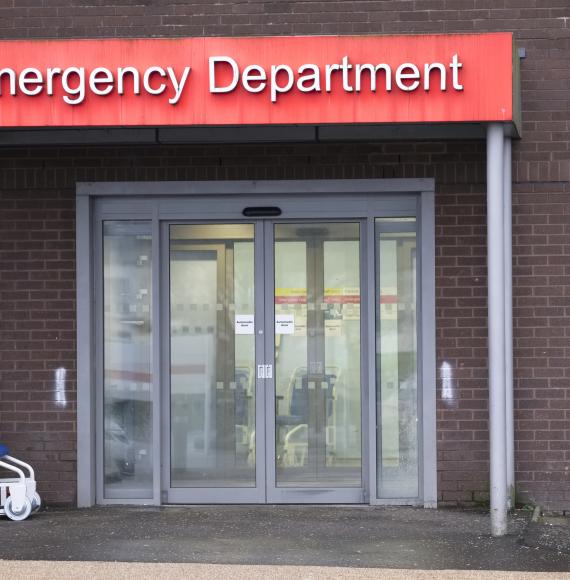“What I say to all the organisations I engage with is to forget the technology and come up with: Why do you want to do automation, what are you looking to achieve in the next 12-18 months, and set yourself a progress of work”
Those are the words of wisdom of Darren Atkins, Chief Technology Officer (Artificial Intelligence & Automation) at East Suffolk and North Essex NHS Foundation Trust and an experienced head when it comes to automation and intelligent solutions within the health sector.
Technology is already an integral cog in the healthcare machine and the coronavirus pandemic has merely further accelerated this widespread adoption of solutions, as health and care professionals battle to overcome logistical challenges, changes to working patterns and practices and attempt to free up key manhours from time-consuming administrative tasks in order to spend more time with patients.
This is where automation technology can play a major role in Darren’s view. Having been involved with integrated automation into his own trust for the past few years, he and his team have managed to free up thousands of hours a month by transferring slow, menial tasks from human workers to robot counterparts.
Does that sound inherently sci-fi? Absolutely.
Yet, it is becoming a reality in places such as East Suffolk and North Essex NHS FT. The technology remains in its early days and, as is the benefits of these more digital technology solutions, continues to be iteratively improved upon regularly and shared between trusts and organisations on the NHS Digital Exchange, a platform Darren had an instrumental role in establishing.
As Darren explains on the podcast too, he has ambitions for the Digital Exchange to extend beyond just health too: “Through the Digital Exchange, my future goal is that it shouldn’t just be the NHS. It should be the public sector.”
A better connected, collaborative network across public services has been sought for years by countless people, organisations and governments and, at least in the field of automation technology, it appears to be becoming a reality. What is essential at these early stages for any successful adoption of automation solutions though is a willingness to engage and be open to the technology.
“What’s really important is to establish a culture of engagement from the very outset.”
To do so requires assurances that the technology is reliable, safe and represents good value for money; all aspects we discuss in length with Darren on the latest podcast episode.
But, let’s just take safety in this instance. One of the biggest fears we’ve witnessed in recent years is the idea that taking control, or at the very least these administrative processes, away from human workers and allowing robots and algorithms to complete them will lead to greater numbers of errors and mistakes. Yet, as Darren explains, that is largely just a common misconception.
“What the robots are doing are [just] replicating what a human does. Now, a robot doesn’t make mistakes unless you teach it to make mistakes.”
Similarly, when something does go wrong, these solutions can often provide a much more granular audit of the mistake – allowing for a more effective and thorough investigation, ensuring the problem does not happen again. Effective, accurate governance in these systems, depending on the tasks they perform, is an essential step of the process too in Darren’s eyes to changing the perception of digital, AI and automation technologies.
To listen to the full conversation with Darren, tune into Episode 11 of NHE’s Finger on the Pulse podcast:



















